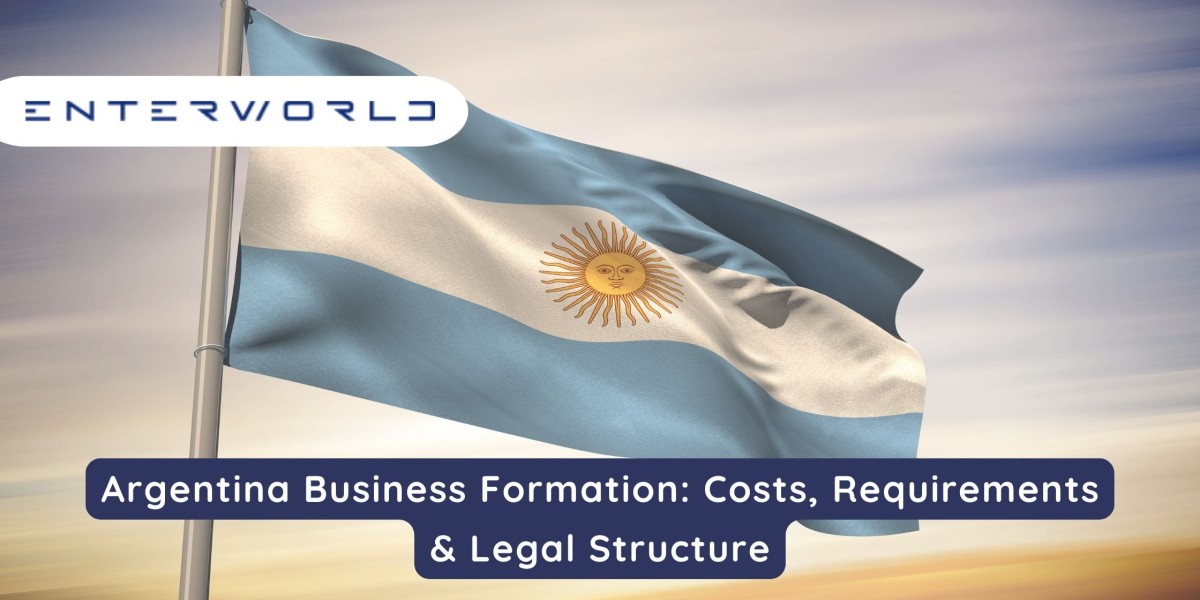Argentina, one of South America's largest economies, offers both challenges and opportunities for foreign investors and entrepreneurs. Known for its strong agricultural base, growing technology sector, and strategic location, Argentina remains an attractive market for international business expansion.
Whether you're planning to establish a representative office, invest in a local company, or launch a fully operational business, it's critical to understand the Argentina business formation process—including legal structures, regulatory requirements, and startup costs.
This guide offers a comprehensive overview to help foreign and local entrepreneurs make informed decisions before entering the Argentine market.
Why Start a Business in Argentina?
Despite facing economic volatility, Argentina continues to attract interest from global investors for the following reasons:
Large domestic market: Over 45 million people with high urbanization and strong consumer culture.
Skilled workforce: Especially in IT, engineering, and professional services.
Natural resources: Rich in agriculture, energy, and minerals.
Strategic trade position: Member of MERCOSUR, offering access to regional markets.
Government incentives: Available for tech, export-oriented, and sustainable development projects.
However, the regulatory environment can be complex. Engaging with legal and tax professionals familiar with local laws is highly recommended.
Legal Structures for Business Formation in Argentina
When setting up a company in Argentina, choosing the appropriate legal entity is one of the most important decisions. Below are the main types of business structures:
1. Sociedad de Responsabilidad Limitada (SRL) – Limited Liability Company
Most commonly used structure for SMEs and foreign investors.
Requires 2 to 50 shareholders (natural persons or legal entities).
Shareholders’ liability is limited to their capital contribution.
No minimum capital required by law, but customary to contribute at least ARS 30,000 or more.
Suitable for commercial, professional, or industrial operations.
2. Sociedad Anónima (SA) – Corporation
Often used by larger businesses and companies planning to raise capital.
Requires a minimum of 2 shareholders.
Minimum capital: ARS 100,000 (as of latest standards).
Must appoint a board of directors (majority must be Argentine residents).
Subject to stricter governance, reporting, and audit requirements.
3. Simplified Stock Corporation (SAS)
Introduced in 2017 to simplify business formation.
Can be incorporated by one or more individuals or legal entities.
Quick online registration (within 24 to 72 hours in some provinces).
Minimum capital: 2 times the minimum wage.
Ideal for startups and entrepreneurs seeking flexibility.
4. Branch Office (Sucursal)
Allows foreign companies to operate directly in Argentina.
Requires registration with the Public Registry.
Must appoint a legal representative (resident in Argentina).
The parent company is fully liable for branch obligations.
5. Representative Office
Cannot engage in commercial or profit-making activities.
Used for market research, liaising with partners, and promoting products.
Not a separate legal entity—liabilities remain with the parent company.
Requirements to Register a Company in Argentina
A. Corporate Name Reservation
The company name must be unique and approved by the General Inspection of Justice (IGJ) or the local commercial registry in provinces outside Buenos Aires.
B. Registered Address
A physical address in Argentina is mandatory for incorporation.
C. Shareholder Identification
Foreign shareholders must obtain a CDI (Clave de Identificación) or CUIT for tax purposes.
Legal entities must also register with the Public Registry.
D. Articles of Incorporation
Must be drafted and signed before a notary public.
Should detail the business purpose, capital, governance, and shareholder structure.
E. Bank Account for Capital Deposit
Required for some structures like the SA.
A provisional account is opened for depositing initial capital.
F. Tax and Social Security Registration
After incorporation, the company must obtain a CUIT number from the Federal Administration of Public Revenues (AFIP).
Must also enroll in the Social Security System and register as an employer, if applicable.
Step-by-Step Company Formation Process
The process varies slightly depending on the type of entity and location but generally includes:
Step 1: Name Reservation
Apply for company name approval with the relevant authority.
Step 2: Drafting Bylaws and Legal Documentation
Prepare the Articles of Incorporation and appoint legal representatives.
Step 3: Notarial Certification
Execute and notarize the Articles of Incorporation.
Step 4: Deposit Share Capital (for SA and SAS)
Open a temporary bank account and deposit the minimum capital.
Step 5: Register with Public Registry
Submit incorporation documents to the Public Registry (IGJ in Buenos Aires).
Step 6: AFIP Tax Registration
Obtain a CUIT number and VAT registration, if applicable.
Step 7: Social Security and Labor Registration
Register as an employer and enroll employees, if hiring.
Step 8: Municipal Permits and Licenses
Depending on your activity, additional sector-specific permits may be required.
Estimated Costs for Company Formation
| Expense Category | Estimated Cost (USD) |
|---|---|
| Legal & Notary Fees | $800 – $2,500 |
| Public Registry Registration | $100 – $400 |
| Tax Registration | Included in service fees |
| Local Address (Virtual/Office) | $50 – $300/month |
| Accounting Services (ongoing) | $100 – $300/month |
Note: These figures are indicative and vary by location, business structure, and service provider.
Tax Considerations
Corporate Income Tax: Progressive rates between 25% and 35%, depending on profits.
VAT (IVA): Standard rate of 21%; reduced rates apply to certain goods and services.
Dividend Tax: Withholding tax of 7% to 13%, depending on applicable tax treaties.
Foreign Exchange Controls: Argentina has foreign currency restrictions; profit repatriation is regulated by the Central Bank.
Employment and Labor Law
Employment contracts must comply with local labor laws.
Companies must register employees with AFIP and the national social security system.
Mandatory benefits include paid vacation, health insurance, severance pay, and bonuses.
Ongoing Compliance Requirements
Once established, businesses in Argentina must comply with several ongoing obligations:
Annual Financial Statements: Must be filed with the Public Registry and tax authority.
Monthly VAT Returns: If VAT-registered.
Payroll Declarations: Submitted to social security and tax authorities.
Transfer Pricing Documentation: Required for transactions with foreign-related parties.
Common Challenges and Risk Mitigation
Bureaucracy and Delays: Incorporation can be time-consuming without local legal support.
Foreign Exchange Controls: Currency conversion and profit repatriation may be subject to approval.
Inflation: Impacts pricing strategies and cost structures.
Working with experienced local advisors and a trusted accounting firm is key to ensuring smooth market entry and compliance.
Conclusion
Argentina business formation offers unique advantages for entrepreneurs seeking access to South America’s second-largest market. However, the process involves regulatory complexity, particularly for foreign investors unfamiliar with local laws and currency controls.
By choosing the right legal structure, understanding startup costs, and engaging with qualified local experts, investors can build a legally compliant and sustainable presence in Argentina.
Whether you’re launching a startup, subsidiary, or representative office, due diligence and legal foresight are essential for long-term success in the Argentine market.
FAQs
1. Can a foreigner own 100% of a company in Argentina?
Yes. Argentina permits full foreign ownership of most types of businesses. However, certain regulated industries may have restrictions or require additional approvals.
2. How long does it take to register a company in Argentina?
Depending on the legal structure and city, the process can take 2 to 8 weeks. SAS entities typically offer faster registration timelines.
3. Is a local partner or director required?
No, but you must appoint a legal representative who is a resident of Argentina. For certain structures, directors must also be residents.








